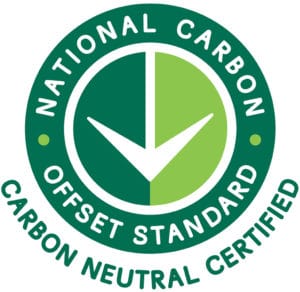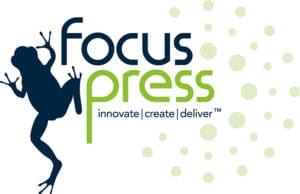New services in 2012: what’s new and what’s ahead…
This year we’ve added to our suite of services. Our clients are readily taking up comprehensive carbon tax modelling: Pangolin’s Carbon Strategy and Risk Report. We are also pleased to announce our upcoming Strategic Energy and Emissions Management service. More in our next newsletter in early 2013. Meanwhile, read our November news:
- Carbon tax: how we are helping
- Certified carbon neutral: what it takes
- Just a pat on the back… clients offset 60,000 tonnes of carbon
- Partner focus: Energywise
- Open air and green – St George Open Air Cinema
- Team news: About Dr Adina Cirtog
Carbon tax: how we are helping
 FB Rice is a leading Australian intellectual property firm with offices in Sydney and Melbourne. Well ahead of 1st July 2012, the firm already knew what to expect from the carbon tax.
FB Rice is a leading Australian intellectual property firm with offices in Sydney and Melbourne. Well ahead of 1st July 2012, the firm already knew what to expect from the carbon tax.
FB Rice could prepare for the direct and indirect costs in the initial carbon price period (2012 – 2015), and beyond.
Understanding the carbon tax impact
FB Rice underwent carbon tax modelling with Pangolin’s Carbon Strategy and Risk Report. Our report detailed the impact of the carbon price from the firm’s power bills, as well as their top 20 general ledger items. The total projected impact incorporated top goods and services procured over a typical trading year. Developed by the University of Sydney’s Sustainability Analysis team, the methodology behind our report is comprehensive.
Modelling: what you get
- A detailed analysis of your electricity, natural gas and waste billing rates.
- The above combined with input / output (IO) modelling on top supply chain expenses.
- The electricity emissions related to these supply chain expense items.
- Estimated cost increases attributed to emissions associated with these expense items.
- The overall impact to your financial bottom line, the associated risks and opportunities.
As a result of the Carbon Strategy and Risk Report, FB Rice knows what to expect from their supply chain and can identify unjustifiable price hikes. Importantly, the firm also understands how much and where to adjust their own costs within ACCC guidelines.
Survival for energy intensive organisations
We’ve found the impact on professional services organisations such as FB Rice is relatively low. We estimate additional costs due to the carbon price at only 0.05 to 0.2 percent due to moderate energy consumption.
By contrast, survival for many energy intensive organisations will depend on a clear view ahead, as well as new efficiencies. We recommend the following actions:
- Prepare for the total impact of the carbon tax: electricity hikes as well as top expenditures on goods and services.
- Review electricity bills in detail, as well as contractual agreements with energy providers. Demand charges are sometimes greater than the actual cost of electricity used. Looking at operational processes and how employees use equipment may reduce costs substantially.
- Find cost savings through workplace energy efficiencies and behavioural change. Typically our Energy Audit clients realise savings of up to 30 percent.
- Investigate opportunities for government incentives and energy grants. These are available at federal and state levels.
Australians hear regularly about tough times for industry, the likes of manufacturers and mining corporations. We’ve identified vast savings for these types of organisations and many others who have already taken action.
FB Rice on carbon tax modelling…
 At FB Rice we have long been aware that carbon pricing is to come into effect in 2012. However it was the Pangolin Report that finally gave us a clear understanding of the potential impact on our business. The report also gives us clear guidelines into how the firm can prepare for the approaching changes and we look forward to continuing to work with Pangolin Associates to reduce our carbon footprint and complete our journey to carbon neutrality.
At FB Rice we have long been aware that carbon pricing is to come into effect in 2012. However it was the Pangolin Report that finally gave us a clear understanding of the potential impact on our business. The report also gives us clear guidelines into how the firm can prepare for the approaching changes and we look forward to continuing to work with Pangolin Associates to reduce our carbon footprint and complete our journey to carbon neutrality.
Dr. Brett Lunn, Managing Partner , FB Ric
Certified carbon neutral: what it takes
National Carbon Offset Scheme (NCOS)
 Many organisations want to be carbon neutral. Some have achieved neutrality but are not yet eligible for the Australian Government’s certification under the National Carbon Offset Scheme (NCOS).
Many organisations want to be carbon neutral. Some have achieved neutrality but are not yet eligible for the Australian Government’s certification under the National Carbon Offset Scheme (NCOS).
Often what needs to be done is not clearly understood. Carbon neutrality under NCOS entails several carefully managed steps plus an investment into workplace carbon management, efficiencies and offsetting.
Becoming part of the certified carbon neutral network
Interest in carbon neutrality certification is escalating. Many of Australia’s top businesses, and a growing number of Pangolin clients, are now part of the certified carbon neutral network.
There are six compulsory steps to get there:
- Measure your carbon footprint: undertake a Greenhouse Gas Assessment.
- Put an Emissions Management Plan (EMP) in place.
- Offset emissions you cannot eliminate through NCOS approved carbon credits.
- Prepare a Public Disclosure Summary for transparency and consumer confidence.
- Engage a qualified third party to verify your documentation.
- Submit your application and fee.
You can’t do it all yourself, third party services required
Early this year our client, Focus Press, achieved certification. Focus Press is a Sydney based printing company providing services across Australia. The company engaged Pangolin for the independent verification component of the NCOS process.
Verifying entities must have specific accreditations. For example, our auditors are registered under the National Greenhouse and Energy Reporting audit framework, one of the two acceptable NCOS qualifications.
Pangolin provides a range of services for companies wishing to become certified carbon neutral. As well as verifications, we assist with greenhouse gas assessments, Emissions Management Plans (EMPs), and carbon credits procurement. As per the NCOS guidelines, however, Pangolin’s verification for Focus Press was strictly independent from other services provided to calculate and reduce emissions. As a verifier we audited these measures and the company’s Public Disclosure Summary.
Make it easier: talk to us about our partners
Planning to engage Pangolin for NCOS services such as a Greenhouse Gas Assessment? For a more streamlined, cost effective process we can recommend a qualified partner for your NCOS verification.
Carbon neutral client Focus Press says…
 As NGER registered, highly experienced auditors we confidently engaged Pangolin Associates for NCOS verification services. Pangolin made our path to carbon neutrality, potentially a difficult process, seamless and straightforward. We would wholeheartedly recommend them to any business looking to undertake this program.
As NGER registered, highly experienced auditors we confidently engaged Pangolin Associates for NCOS verification services. Pangolin made our path to carbon neutrality, potentially a difficult process, seamless and straightforward. We would wholeheartedly recommend them to any business looking to undertake this program.
Louise Pastro, Environmental Manager, Focus Press
Just a pat on the back
Clients offset 60,000 tonnes of carbon
 Since 2010 our clients have offset 60,000 tonnes of carbon – the equivalent of 15,000 cars off the road for one year.
Since 2010 our clients have offset 60,000 tonnes of carbon – the equivalent of 15,000 cars off the road for one year.
Partner focus: Energywise
Voltage: are you paying for more than you need?
 Most businesses receive more voltage than they actually require. The result is wastage, inefficiencies, increased emissions and higher energy costs.
Most businesses receive more voltage than they actually require. The result is wastage, inefficiencies, increased emissions and higher energy costs.
Energywise, an Australian company, supplies products that optimise voltage for individual businesses within commercial buildings and industrial sites. These solutions reduce waste through electricity use and extend the life of equipment, such as lighting, air conditioning, refrigeration, technology and machinery.
Open air and green
 Once again Pangolin proudly partners with St George Open Air Cinema to reduce the event’s carbon footprint.
Once again Pangolin proudly partners with St George Open Air Cinema to reduce the event’s carbon footprint.
Event organisers have undertaken a number of green initiatives.
Team news: meet Dr Adina Cirtog
 Adina conducts Greenhouse Gas Assessments and Energy Audits and identifies substantial cost savings and emissions reductions for our clients. She is currently working with several clients through the Business Sustainability Alliance (BSA), a South Australian initiative.
Adina conducts Greenhouse Gas Assessments and Energy Audits and identifies substantial cost savings and emissions reductions for our clients. She is currently working with several clients through the Business Sustainability Alliance (BSA), a South Australian initiative.
Previously Adina was a design engineer in the Romanian branch for Fact GmbH (Germany). She developed digital plant construction designs for German companies covering electrical, ventilation, water and gas piping specifications. She was also actively involved in developing a network of NGO’s from South-East Europe for youth policy development (RYCID).
Adina holds a PhD in Mechanical Engineering from Tokyo University of Agriculture and Technology.
